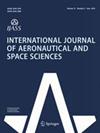非机载gps着陆辅助设备的软件安全保障
IF 1.4
4区 工程技术
Q2 ENGINEERING, AEROSPACE
International Journal of Aeronautical and Space Sciences
Pub Date : 2023-09-28
DOI:10.1007/s42405-023-00663-8
引用次数: 0
摘要
摘要:本文根据保证等级3对RTCA的软件标准DO-278A进行了研究,为陆基助航软件的审批提供了一个概念。为此,对相关文献和标准进行了回顾和评估,以确定其是否适用于提出这一概念。由此产生的批准概念显示了我们根据DO-278A进行开发过程的方法,该方法基于传统的DO-278A并专注于活动时间表。因此,本文首先对系统与软件开发之间的关系进行了初步的探讨。此外,还提出了与开发相关的相应标准。这个概念被划分为软件计划、实现和验证的三个主要阶段,这些阶段被细分并安排在具体的活动中。每个活动都包含一个大纲,描述DO-278A期望的内容以及我们组织这些内容的方法。本文展示了我们根据DO-278A获得软件批准的概念方法。这个概念是准备批准一个无线电导航设备。本文章由计算机程序翻译,如有差异,请以英文原文为准。
Software Safety Assurance in Non-airborne GPS-based Landing Aids
Abstract This paper investigates the software standard DO-278A from the RTCA according to assurance level 3 to provide a concept for approving software of ground-based navigation aids. For this purpose, related literature and standards were reviewed and evaluated for their applicability for proposing such a concept. The resulting approval concept shows our approach for conducting the development process according to DO-278A based on a traditional one and focusing on an activity schedule. Therefore, the paper offers preliminary considerations at first to show the relation between system and software development. In addition, corresponding standards that are related to the development are presented as well. The concept is segmented in three main phases for software planning, realization, and verification, which are subdivided and scheduled in specific activities. Each activity consists of an outline describing the contents expected by DO-278A and our approach to organizing them. This paper shows our conceptional approach to obtain an approval for software according to DO-278A. This concept is prepared to approve a radio navigation aid.
求助全文
通过发布文献求助,成功后即可免费获取论文全文。
去求助
来源期刊

International Journal of Aeronautical and Space Sciences
ENGINEERING, AEROSPACE-
CiteScore
3.10
自引率
11.80%
发文量
111
期刊介绍:
The International Journal of Aeronautical and Space Sciences (IJASS) encourages submission of papers addressing all aspects of aerospace science and technology, which include acoustics, aerodynamics and fluid mechanics, aerospace telecommunications, airworthiness and maintenance, avionics, combustion and propulsion, flight dynamics, guidance and control, flight simulation and operations, low carbon manufacturing, nano application, plasmas and lasers, research instrumentation and facilities, space exploration, structural dynamics and aeroelasticity, structures and materials, and thermomechanics and reacting flows. The journal also addresses the ground and flight tests of aerospace systems including aircraft, air ship, helicopter, microelectromechanical system, missile, satellite, rocket, and UAV.
 求助内容:
求助内容: 应助结果提醒方式:
应助结果提醒方式:


